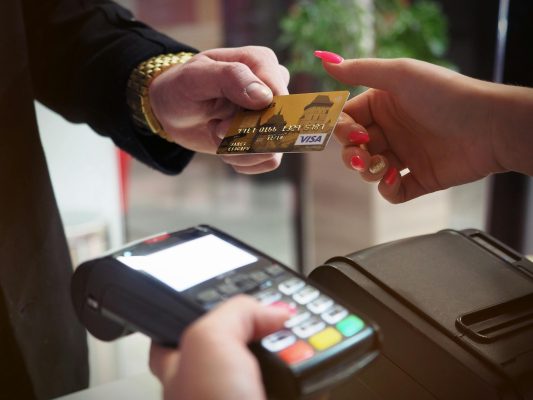With the rapid development of the retail market in Vietnam, especially with the e-commerce boom, many foreign-invested companies are expanding their operations by establishing retail outlets. However, to be granted a license, these companies must meet specific legal conditions as stipulated by Vietnamese law. Obtaining the first retail outlet license not only demands strict adherence to business requirements but also requires the preparation of a complete and accurate set of documents as mandated by the licensing authority.
In this article, we aim to help businesses clearly understand the conditions and necessary documentation for obtaining the first retail outlet license in Vietnam, thereby facilitating a smoother and more efficient licensing process.

1. Which Enterprises Must apply for a Retail Outlet License
According to the Investment Law 2020, the Commercial Law 2005, and related guiding documents, retail operations in Vietnam are classified as a conditional business activity for foreign-invested enterprises. Specifically, under Decree No. 09/2018/ND-CP, any foreign-invested enterprise intending to establish its first retail outlet in Vietnam must apply for a retail outlet license from the competent state management authority. This licensing process is designed to ensure government oversight of retail activities, protect consumer rights, and foster a healthy competitive environment.
According to the regulations, if an enterprise conducts direct sales to final consumers through a specific retail store format, any foreign-invested enterprise must complete the necessary procedures to obtain a retail outlet license. This requirement differs from that for 100% domestically owned Vietnamese enterprises, which only need to register a business location for direct retail operations—a very simple administrative process. However, for foreign-invested enterprises, regardless of the percentage of foreign capital, obtaining a retail outlet license is mandatory. Therefore, when a foreign enterprise intends to acquire a business that operates multiple retail outlets in Vietnam—with the ultimate goal of continuing to operate the chain of stores after conducting merger and acquisition procedures—it must reassess both the feasibility of obtaining the required license and the associated costs.
For example, consider a joint venture between a Korean investor and a Vietnamese enterprise (with the Korean investor holding 40% of the capital) that wishes to open a retail store in Hanoi. Although this company includes Vietnamese capital, the presence of foreign investment still obligates the enterprise to apply for a retail outlet license.
Note that if a foreign-invested enterprise that already operates a retail outlet wishes to open an additional retail location, then according to Decree No. 09/2018/ND-CP, after establishing its first retail outlet, any subsequent outlet must be approved through the Economic Needs Test (ENT) procedure. The ENT is an evaluation process designed to assess whether the new retail store will affect the domestic market or competition.
2. Condition for Establishing the First Retail Outlet
Financial Capacity, to convince the competent authority to approve the application for establishing the first retail outlet, the enterprise must demonstrate its financial capacity. This financial capacity refers to the ability to operate a retail outlet effectively. Therefore, the enterprise is required to present a detailed plan outlining its investment commitments, sources of capital, operating expenses, and projected revenues.
No Tax Debt, when submitting the license application, the enterprise must provide documentation proving that it has no outstanding tax liabilities, as well as evidence demonstrating its adherence to tax regulations during operations.
Business Operational Experience, this serves as an additional supporting factor in the license application. Enterprises with prior experience in operating a chain of retail outlets will enjoy an advantage during the review process. Note that while this factor enhances the persuasiveness of the application, it is not a mandatory requirement.
Location and Area Requirements for the Retail Outlet, unlike domestic enterprises, foreign-invested companies that wish to establish a retail outlet must strictly comply with zoning regulations. The licensing authority evaluates the proposed location based on the commercial planning of the area, including factors such as density and the potential impact on existing Vietnamese retail outlets and business premises. Typically, setting up a retail outlet in a pre-planned commercial zone is more likely to receive approval, as these areas are designated for commercial activity and placing a store in a shopping center is less likely to adversely affect surrounding businesses.
If a retail outlet does not fully meet the exemption criteria for the Economic Needs Test (ENT), then any foreign-invested enterprise must undergo the ENT assessment process before an operating license is granted. This process evaluates the potential impact of the new retail outlet on the domestic market and competition.
ENT Criteria: When assessing the economic needs for a new retail outlet, the competent authority—usually the Department of Industry and Trade, possibly in coordination with the Ministry of Industry and Trade—will consider key factors as stipulated in Clause 2, Article 23 of Decree No. 09/2018/ND-CP. These criteria include:
- Impact scope of the retail outlet in the area: The regulatory authority will review the market conditions in the proposed location, including factors such as population density, consumer spending capacity, and the level of consumer demand that the outlet could meet:
- Current status of retail system in the area: The number of retail outlets already operating in the relevant geographic area will be evaluated to determine the level of competition and the risk of oversupply.
- Impact on traditional retail markets: The opening of a new retail outlet may significantly alter the landscape for existing traditional shops, local markets, or supermarket chains. Consequently, the ENT will assess whether the entry of a foreign direct investment (FDI) enterprise might disrupt the current market balance.
- Impact on Infrastructure and Safety: Factors such as traffic density, environmental sanitation, and fire safety requirements in the vicinity of the proposed outlet will be considered to ensure that the enterprise’s operations do not adversely affect the surrounding community.
- Contribution to the Local Economy: In addition to market impact, the new outlet will be evaluated based on the economic benefits it offers—such as job creation, promotion of modern consumption, and increased local government revenue through taxes.
The ENT evaluation process is a crucial step to ensure the balanced development of the retail system, prevent oversupply, and maintain stability in the domestic market.
3. Retail Outlet License Application Documents
Establishing a retail outlet in Vietnam for foreign-invested enterprises (FDI) requires a complete set of documents in accordance with Article 27 of Decree No. 09/2018/ND-CP. This documentation not only provides essential information about the enterprise but also plays a crucial role in evaluating the business viability, financial capacity, and alignment with local commercial development plans. Below are the key components of the application for a Retail Outlet License:
Retail Outlet License Application Form
The enterprise must submit the Retail Outlet License Application Form, in the format specified as Form No. 04 in the Annex of Decree No. 09/2018/ND-CP. This official document represents the enterprise’s request to the licensing authority and includes basic information about the company as well as details of the proposed retail outlet.
Detailed Project Explanation Document for Establishing a Retail Outlet
The detailed explanation document is the most critical component of the retail outlet license application. It provides the regulatory authorities with the necessary information to assess the feasibility and rationale of the retail project. The key elements of this document include:
- Retail Outlet Location: Exact Address: The enterprise must specify the precise address of the proposed retail outlet; Area Overview: A comprehensive description of the area is required, including its economic and social characteristics, the presence of nearby commercial facilities, traffic flow, and the demographic profile of the local community; Compliance with Commercial Zoning: The law mandates that the retail outlet’s location must align with the local commercial development plan. Therefore, the enterprise must provide evidence demonstrating that the chosen site complies with zoning regulations and does not conflict with local commercial development policies; Legal Documentation for the Location: Supporting documents must include a lease contract or rental agreement for the premises, a site plan of the proposed store, and any other relevant documents proving the right to use the location.
- Business Plan for the Retail Outlet: Business Model: A detailed description of the store’s operational format (e.g., supermarket, convenience store, showroom, distribution center, etc.) is required; Market Development Strategy: The plan should outline strategies for expanding the customer base, establishing distribution channels, and effectively penetrating the market; Labor Requirements: The document must include a recruitment plan, detailing the anticipated staffing needs and the ratio of domestic to foreign labor (if applicable); Socio-Economic Impact Assessment: An analysis of the potential benefits that the new retail outlet will bring to the local area is necessary. This should cover job creation, contributions to local government revenue through taxes, the promotion of a modern retail market, and the enhancement of service quality for consumers.
Financial Plan for the Retail Project, the financial plan is a critical element to ensure that the enterprise has sufficient financial capacity to operate the retail outlet. The content includes Financial Statements: If the enterprise has been operating in Vietnam for one year or more, it must submit the most recent audited financial statements. For newly established enterprises, documentation proving the source of investment capital must be provided; Cash Flow Analysis and Capital Raising Capability: The enterprise must explain its current sources of funds, its capital raising plan, and demonstrate its financial capacity to ensure stable business operations. Supporting Financial Documents: These include bank statements, loan documents (if applicable), and documents verifying the investors’ capital contributions.
Tax Clearance Certificate: The enterprise must provide documentation from the tax authority confirming that it has no overdue tax liabilities. This is a mandatory requirement to ensure that the enterprise demonstrates clear legal responsibility and compliance with tax obligations in Vietnam.
Copies of the Enterprise’s Legal Documents: The enterprise must submit certified copies of the following legal documents: Enterprise Registration Certificate (ERC): Proves the legal status of the enterprise in Vietnam. Investment Registration Certificate (IRC) (if available): Required for projects that necessitate a separate investment license. Trading License.
It is crucial that all submitted documents are certified copies bearing the official stamp of the relevant authority or notarized as required. Any documents in a foreign language must be translated into Vietnamese and notarized by an authorized organization.
Complete Preparation According to the Requirements of the Department of Industry and Trade: The application dossier must be fully prepared from the outset to avoid delays caused by the need to submit additional documents, which could slow down the licensing process. Although the law specifies the required documents, local Departments of Industry and Trade may request supplementary materials, so enterprises should confirm the exact requirements with the local licensing authority prior to submission.
The retail outlet license application dossier is not merely an administrative formality; it is a tool for the enterprise to demonstrate its financial capacity, sustainable business plan, and compliance with local commercial development planning in Vietnam. Careful, complete, and accurate preparation of the dossier from the start will help shorten the review process and enable the enterprise to commence operations quickly.
Time of writing: 10/03/2025
The article contains general information which is of reference value, in case you want to receive legal opinions on issues you need clarification on, please get in touch with our Lawyer at info@cdlaf.vn

Why choose CDLAF’s service?
- We provide effective and comprehensive legal solutions that help you save money and maintain compliance in your business;
- We continue to monitor your legal matters even after the service is completed and update you when there are any changes in the Vietnamese legal system;
- Our system of forms and processes related to labor and personnel is continuously built and updated and will be provided as soon as the customer requests it;
- As a Vietnamese law firm, we have a thorough understanding of Vietnam’s legal regulations, and grasp the psychology of employees, employers, and working methods at competent authorities;
- CDLAF’s team of lawyers has many years of experience in the field of labor and enterprises, as well as human resources and financial advisory.
- Strict information security procedures throughout the service performance and even after the service is completed.
You can refer for more information:
- Conditions for establishing a company operating in the logistics field
- Conditions for conducting Organization of Conventions and Trade Shows: A legal perspective and advice for Foreign Investors
- Legal requirements for organizing various types of events in Vietnam: A comprehensive guide for investors







